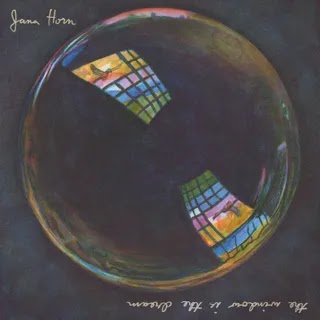Fourteen years after their first collaboration, the unlikely duo reunites for a well-curated selection of covers that spans generations, while adding their fascinating mystique to every one.
The success of Robert Plant and Alison Krauss’ Grammy-winning 2007 record Raising Sand set a lofty bar for their bewitching energy as a duo. Fourteen years later, Raise the Roof maintains their careful simplicity, rising to the challenge of releasing another record of mostly cover songs that are still impactful and original. When their talents are interlaced, Plant and Krauss are masters at dusting off generations-old tracks and making them saunter to a fresh, personal rhythm.
Between his Led Zeppelin roots, his love of 1950s doo-wop, and a decades-long passion for Asian and South Asian music, Robert Plant has tried many musical derivatives on for size. Equal parts glimmering golden ringlets and devilish rock’n’roll mystique, his career is one of inarguable expansion and divergence. It was incomplete, however, until a 2004 Lead Belly tribute concert where he met bluegrass singer Alison Krauss, the lifetime Grand Ole Opry member, who, until this year, held the record for most Grammy awards won by a woman, having won her first at age 18.
Despite seemingly polarized genre identifications, the pair’s “almost telepathic” connection was immediate, first yielding the effulgent Raising Sand. Produced by T Bone Burnett, the collection of 12 covers and one Jimmy Page/Robert Plant original showcased how the two musicians coalesced when venturing into what Plant dubbed the “music of the mountains.”
Raise the Roof, also produced by Burnett, is the dark and spacey counterpart to Plant and Krauss’ first release, with covers that span from modern indie-folk band Calexico to early Delta blues musician Geeshie Wiley. Their cover of Calexico’s “Quattro (World Drifts In),” the song that ignited Krauss’ desire for a second duo record, suspends Plant and Krauss in a personal nomadic catharsis, delivered with such ardency that it is as if the two penned the track themselves. Similarly, despite the insidious nature of Wiley’s “Last Kind Words Blues,” Krauss’ voice soars above it all, like a sunflower straining towards sunlight. The opposing tones of Krauss and Plant, coupled with Marc Ribot’s gentle banjo plucks and Stuart Duncan’s hypnotizing mandolin, harkens back to Plant’s galvanizing vocal symmetry with his other female duet partner, the immortal folk singer and Fairport Convention frontwoman Sandy Denny, the only guest vocalist on any Led Zeppelin record.
Plant and Krauss’ rendition of the Anne Briggs classic “Go Your Way” feels like a dark and stormy folkian B-side to Led Zeppelin III’s crown jewel “That’s the Way,” both haunting and divine. The stylistic changes, such as the ebbs and flows of Plant’s soft rasp with an emphasized drum beat and sorrowful pedal steel, thoughtfully reinvent the track as a farewell letter that feels miles from the original. Plant is persuasive and comfortable on “Searching for My Love,” the softest and most innocent track on this intimately dark record. The bridge’s magmatic guitar riffs pair tremendously with his boundless vocals.
Written by Burnett and Plant, “High and Lonesome” is the zenith of Raise the Roof, with the weathered energy of a dirt-dusted cowboy boot stomping the stage. The clapping percussion dances the track into a fireside incantation; Plant chants “Will she still be mine?” and “There I must find my love” as if casting a spell, while violins swirl up from the cauldron of his lower register. Plant and Krauss’ paralyzing and disquieting reimagination of Appalachian-life raconteur Ola Belle Reed’s “You Led Me to the Wrong” continues the record’s theme of revealing their darker side.
The album falls into a valley of platitudes with the final number, “Somebody Was Watching Over Me.” The Brenda Burns cover falls short, with a haphazard piano part and incongruous backing vocals. Raise the Roof should have ended one track sooner, on Merle Haggard and Dean Holloway’s “Going Where the Lonely Go.” Glinting with Russ Pahl’s pedal steel touches, it’s Krauss’ most empyreal moment, conjuring the lonesome dreamscape imagery simply by her stunning approach as a vocalist.
Plant and Krauss remain an unexpected pairing, at least on its face. But what beauty lies beneath. With versions that bend and reshape the originals, they once again leave their imprint on a well-curated songbook that suits their mystical nature. They dig deeper into the corners of American music and by doing so, come up with something far more rare and incisive about its past.








%20Music%20Album%20Reviews.webp)







0 comments:
Post a Comment